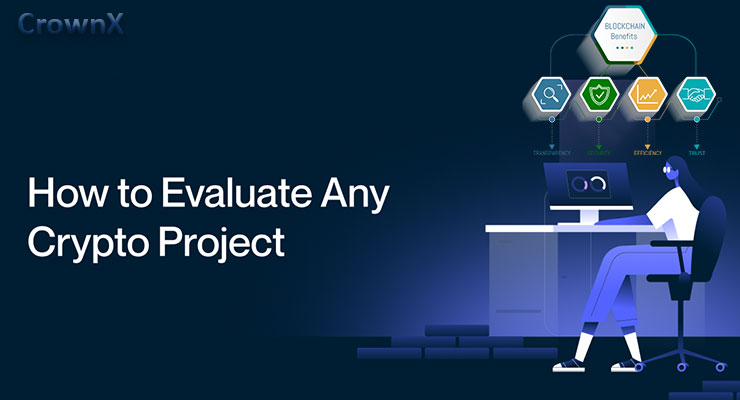
How to Evaluate Crypto Technology
Evaluating crypto technology is essential for making informed investment decisions and understanding the potential of a cryptocurrency project. Here's a comprehensive guide on how to evaluate crypto technology:
Whitepaper Analysis:
Start by reading the project's whitepaper. This document outlines the technology, goals, use cases, and roadmap of the cryptocurrency. Look for a clear problem statement, innovative solutions, and a well-defined strategy.
Technology Stack:
Understand the underlying technology stack. Most cryptocurrencies are built on blockchain platforms like Ethereum, Binance Smart Chain, or their own proprietary blockchains. Evaluate the scalability, security, consensus mechanism, and other technical aspects of the chosen blockchain.
Consensus Mechanism:
Different blockchains use different consensus mechanisms (Proof of Work, Proof of Stake, Delegated Proof of Stake, etc.). Assess the chosen consensus mechanism for its security, energy efficiency, and decentralization.
Smart Contracts and DApps:
If the cryptocurrency supports smart contracts and decentralized applications (DApps), assess their capabilities, programmability, and developer support. Check for auditing of smart contracts to ensure security.
Token Standards:
Understand the token standards used. For example, ERC-20 and BEP-20 are common standards for fungible tokens, while ERC-721 and BEP-721 are used for non-fungible tokens (NFTs). Evaluate the token's use case and utility.
Use Case and Utility:
Analyze the real-world use case and utility of the cryptocurrency. Does it solve a significant problem? Is it disruptive in its industry? Assess whether the technology has the potential to gain mass adoption.
Development Team:
Research the development team's background and experience. Look for a skilled and experienced team with a track record of successful projects. Transparency and communication are important indicators of a strong team.
Community and Adoption:
Check the size and engagement of the cryptocurrency's community. A strong and active community can drive adoption and contribute to the project's success.
Partnerships and Alliances:
Evaluate partnerships and alliances with other projects, companies, or organizations. Strategic partnerships can enhance the credibility and adoption of the technology.
Token Distribution:
Study the token distribution model. A well-distributed token with a clear allocation to different stakeholders (developers, community, investors) can promote a healthy ecosystem.
Regulatory Compliance:
Ensure that the cryptocurrency project adheres to legal and regulatory requirements in its jurisdiction. Compliance with local regulations is crucial for long-term sustainability.
Market Competition:
Research the competitive landscape. How does the cryptocurrency compare to similar projects? Assess its unique selling points and advantages.
Roadmap and Development Progress:
Review the project's roadmap and development milestones. Transparency about progress and updates is important for gaining investor trust.
Security and Auditing:
Look for third-party security audits of the codebase and smart contracts. A secure technology infrastructure is essential to prevent vulnerabilities and attacks.
Market Sentiment:
Gauge the sentiment of the crypto community and investors toward the technology. Monitor discussions on social media, forums, and news platforms.
Remember that evaluating crypto technology requires a combination of technical knowledge, research, and critical thinking. It's advisable to consult with experts and stay updated on industry trends before making investment decisions.